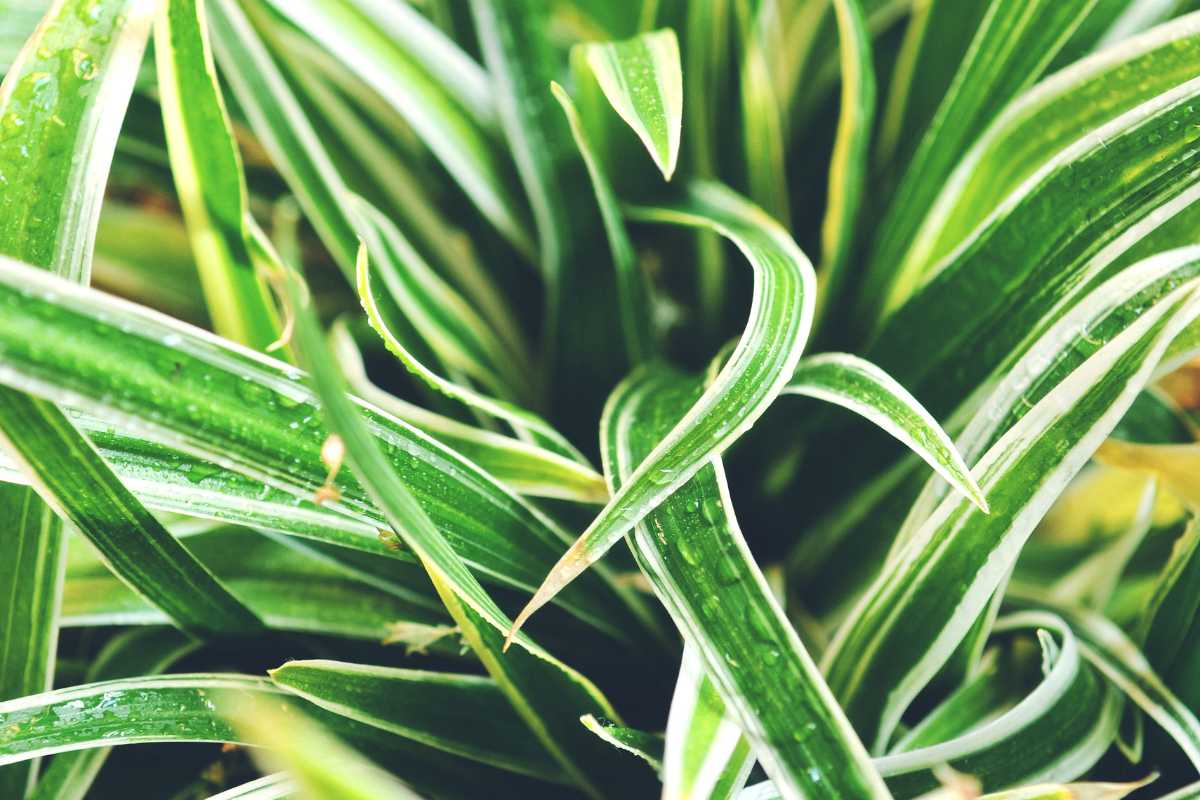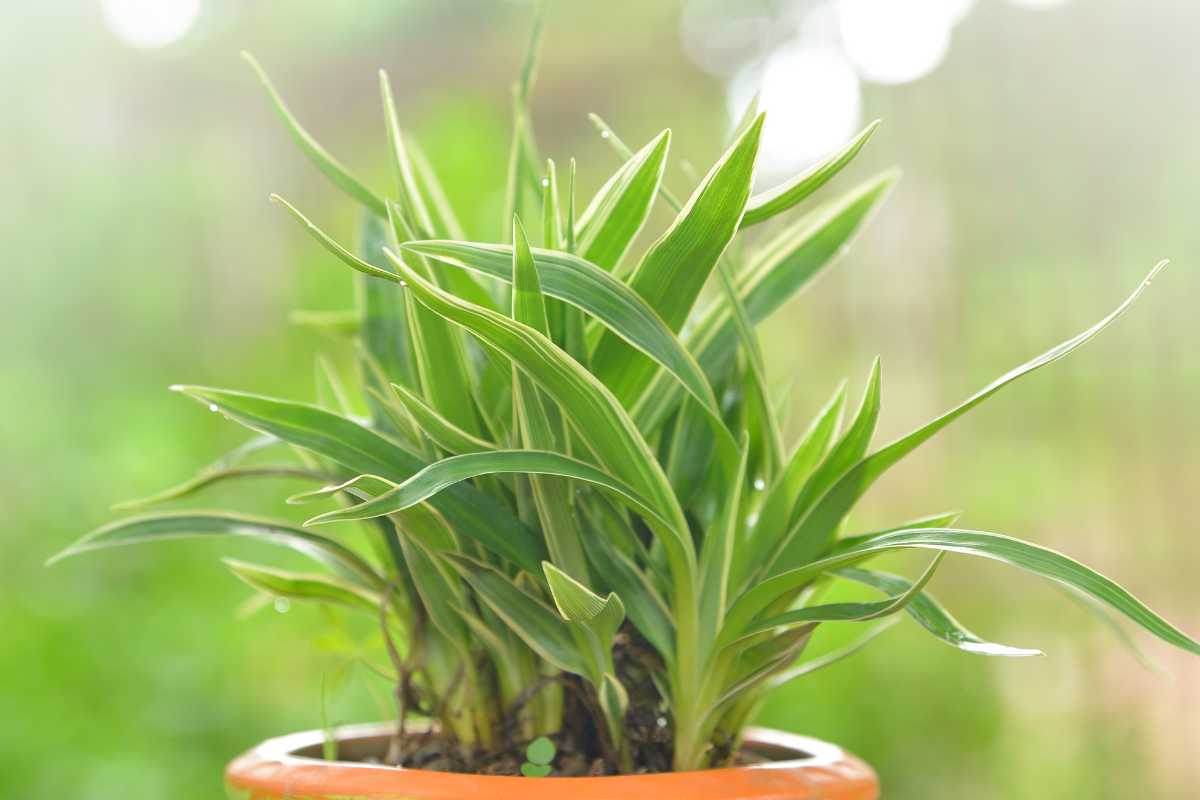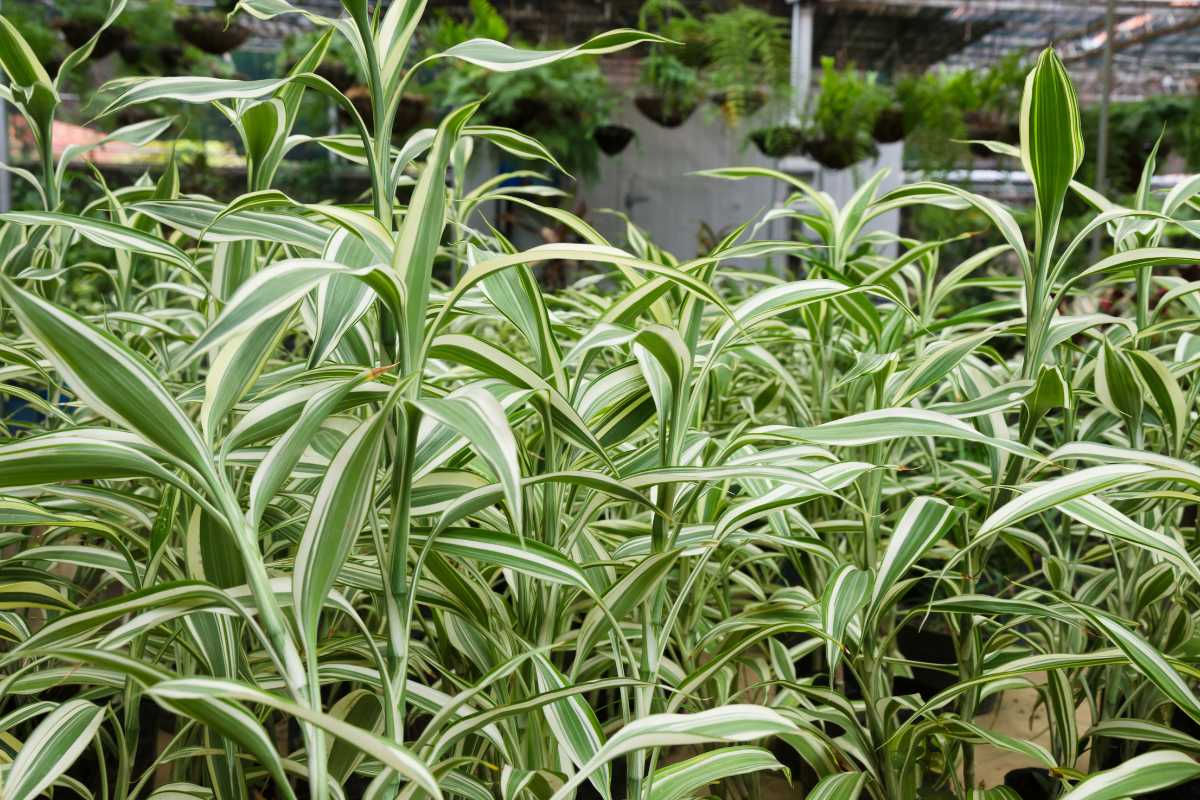Spider plants are air-purifying plants that require minimal care. Give them a good source of indirect light and a good potting mix and they will be good for a long time.
Do not put them under direct sunlight though as their leaves might burn. Its hardy leaves can tolerate neglect so it’s perfect for busy families who have less time inside the house.
While some common houseplants are toxic to rats and mice, it seems that spider plants leave them indifferent. Spider plants are safe for them but they will rarely eat them.
Sometimes, they could exchange the root system for shelter and dig around to hide there. This could displace or damage the roots and end up causing the death of both mature and baby plants in extreme cases.
Mice also like to hide food in the soil, so they might choose your spider plant pot to bury their stash. Everything considered, it’s best to keep your spider plants away from rats and mice.
- Related article: Are Spider Plants Easy to Care for
To find out how you can keep rats and mice away from your spider plants in this article.
Are Spider Plants Poisonous to Rats and Mice?

Spider plants shouldn’t be dangerous for rats and mice. While there is plenty of information on the toxicity of these plants for most common pets, it isn’t always easy to find reliable data concerning rodents.
The ASPCA (American Society for the Prevention of Cruelty to Animals) lists spider plants as not toxic to cats and dogs.
On many websites, one can read that these compact plants are safe plants in general, but these don’t usually cite scientific sources.
What is certain is that the leaves of spider plants aren’t poisonous for hamsters and usually what they can eat is safe for mice and rats as well. The seed capsules and the blossoms might be toxic, but spider plants rarely produce flowers and they are usually very short-lived.
It’s true that in nature rats and mice are very careful and usually stick to foods they know to be safe. Only if food is very scarce, they would venture to test something new.
Usually, the pack would observe the one rat or mouse that has nibbled on the food and check for any adverse reactions. If something is determined unsafe, the whole pack will avoid it indefinitely.
In captivity though, rodents have lost this learned behavior and they trust humans completely.
Instead of testing small bits of something unknown to them, they just munch away on anything they are given or that they can find around the house.
Some pet-friendly plants are:
- African violet
- Chinese money plant (Pilea peperomioides)
- Air plant (Epiphytic plant)
Although these are tagged as safe houseplants, it might be best to err on the side of caution and try to prevent your pet mice or rats from eating them.
Try to avoid it especially if you haven’t grown the plant yourself, as it may have been sprayed with harmful chemicals and may cause an upset stomach on your pets.
While spider plants aren’t supposedly dangerous, many species can be toxic for mice and rats.
If you have pet rodents, avoid this list of plants that are most toxic to pets:
- Geraniums
- Azaleas
- Chrysanthemum
- Hyacinths
- Tomatoes (just the leaves)
- Peace lily
- Aloe plant
- Snake plant
- Asiatic lily
Unfortunately, they are useless to get rid of wild rodents that may have invaded your house since they will recognize them as dangerous and avoid them.
Some plants can be used to deter rats and mice though, such as:
- Marigold
- Daffodil
- Rosemary
- Lavender
- Garlic
- Onion
Spider Plants, Rats, and Mice

Rats and mice will usually be indifferent to spider plants and other popular houseplants. They might nibble on them if they can’t find any other food, but this is very rare.
It is very unlikely that your pet rodents would try to eat spider plants, also because they will usually have much more interesting things to feed on.
It is true though that mice are opportunistic feeders and excellent scavengers. In the case of an infestation, you might notice some damage to the plants if you have removed every other source of food.
Mice are especially attracted to the young shoots, which are much more tender than the full-grown plant. In this case, they will most likely remove the whole young plant.
The most damage to this striking plant is caused when mice dig in the soil to bury food or to build a shelter. With their activities, they might harm the root system.
This could result in the death of the plant if it is unable to recover from the trauma.
How to Keep Spider Plants Away From Rats and Mice

Even if it’s unlikely that rats will be attracted to spider plants, it’s still best to keep your spider plants away. Since they lack the caution of their wild relatives, they could end up eating too much and getting sick.
If you notice that your pets have become a little too interested in your greens, you can consider planting some wheatgrass for them to munch on.
To avoid mice digging around your spider plants, you could cover the soil with crushed gravel or small pebbles.
If you are concerned about wild rodents damaging your spider plants, the best way to prevent this is to keep them out of the house.
You can check for holes or cracks that might allow entrance to rats or mice in your home and seal these up with steel wool.
Something sure to attract all kinds of pests is leftover food, as well as open garbage bins or dirty pet dishes. By keeping your house tidy at all times, you will avoid providing easy sources of food and rodents altogether.
If the situation is dire, you can consider using mouse traps, but be careful in choosing one that doesn’t cause unnecessary pain to the animal.
Snap traps are a good option, for example. You can place them near mouse paths and bait them with peanut butter, which they can’t resist.
Most garden centers stock mouse repellents and sonic mouse deterrents to place in the garden. Finally, you can consider getting a cat!
Final Thoughts if Spider Plants Are Safe for Rats and Mice
Rats and mice do not usually turn to spider plants for food. They will only do so only when their resources are scarce and they are already desperate.
To stop your pet rodent’s curiosity about your spider plants, give them wheatgrass or hay, or other sources of food. You can also discourage wild rodents from entering your house by sealing up cracks and holes.
Keep your spider plant happy by keeping wild rodents at bay through the tips found in this article.
If you find that information helpful but still want to learn more, consider giving these great articles a read:
- Spider Plant Safe for Cats
- Spider Plant Safe for Dogs
- Spider Plant Safe for Humans
- Spider Plant Safe for Rabbits
Sources:

